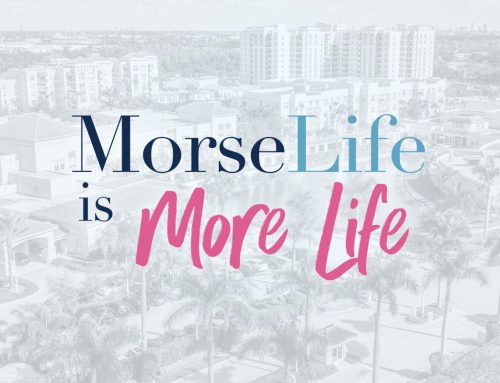
When is it Time for Memory Care?
There’s a saying amongst senior healthcare providers that goes: “If you’ve met one person with dementia, then you’ve met one person with dementia.”
People with dementia are people, first and foremost. Dementia cannot erase individuality or eliminate what makes us special and distinctive.
How your loved one experiences the effects of cognitive change and responds to them will also be unique to them. Dementia is not always predictable. Its outward signs and symptoms depend upon many factors, including which parts of the brain are impacted and how much it has progressed.
With so much variation in how this condition shows up, you may wonder how to recognize and respond to your loved one’s needs if they experience it.
If your family is navigating this issue, you’re not alone. Dementia affects tens of millions of people worldwide.
Still, each family faces their own challenges and considerations in determining if a loved one with dementia requires more daily care and support than can be provided at home.
At MorseLife, we support and guide many families who make the complex decision to transition a loved one into Memory Care.
Recognizing the signs it may be time for Memory Care
When is it time for Memory Care? The answer depends on your unique family circumstances and your loved one’s needs.
Recognizing the symptoms of dementia and their severity can help you assess whether your loved one could benefit from the advanced level of daily support a Memory Care community provides.
Dementia symptoms include:
- Memory loss
- Word-finding issues and communication problems
- Confusion, disorientation or wandering
- Behavioral and personality changes
- Difficulties with attention and concentration
- Lack of judgement and insight
- Reduced safety awareness
It can also be helpful to explore the ways dementia symptoms show up in real life. This can include:
- Challenges with medication management and neglecting personal hygiene
- Getting lost in familiar places or increased confusion in the evenings
- Feeling unsteady when walking or having falls
- Leaving household appliances on
- Trouble managing household tasks or paying bills
- Changes in energy levels
- Agitation, impulsivity, or depression
- Withdrawal from preferred activities and social situations
Dementia’s progression is expressed in three broad categories—mild, moderate, and severe. These account for symptom severity and impact on functional abilities.
- Those with mild dementia may be largely independent but experience intermittent word-finding and memory issues, and episodes of mild confusion
- Those with moderate dementia have more pronounced symptoms that affect their daily life, safety, and ability to be independent. Personality and behavioral changes and changes in abilities may become more apparent in this stage
- Those with severe dementia may require assistance with most or all daily tasks. They may struggle to communicate and experience significant memory issues.
Dementia changes often happen gradually but can be unpredictable. If your loved one has mild cognitive impairments, it may be wise to begin discussing Memory Care and explore your options for this level of senior living.
This way, your loved one can take a more active role in the dialogue and planning phase. They can also transition into Memory Care when they can reap its full benefits for their quality of life and receive the mental stimulation and social engagement they need to feel and function their best.
Transitioning earlier rather than later also means your loved one will feel comfortable and familiar with their community and caregivers and develop bonds of trust and respect.
If your loved one has moderate stage dementia, you may have concerns for their safety at home.
Memory Care provides security, support, and engagement opportunities for those living with moderate cognitive change. It can enhance both independence and quality of life, by providing consistent care and assistance with activities of daily living and a calming, home-like environment.
If you’re wondering who Memory Care is ideal for, read our recent blog, What Is Memory Care? In it, we examine who can benefit from life in a Memory Care community.
Comparing home life to Memory Care
Your loved one may resist the idea of giving up their life at home. They may worry that transitioning into Memory Care will mean relinquishing their independence or have concerns that they won’t fit in or enjoy life as much.
These concerns are valid and natural.
You can support your loved one in processing these feelings by sharing with them the many benefits of Memory Care.
You may also have concerns that your loved one might experience a lower quality of life if they’re no longer living at home. Even if you’re concerned for their safety, you want them to be happy and enjoy their life.
The good news is the opposite is true. Most families who choose Memory Care report their loved one’s life quality notably improves on the other side of their transition.
That’s because Memory Care communities offer many advantages that life at home does not.
- Residents receive around-the-clock support and care from trained professionals who provide respectful assistance to meet their needs
- An array of activities, programs, and events, geared toward residents’ abilities, needs, and preferences
- Easy-to-navigate and feels home-like to support residents’ sense of familiarity and independence
- Security features to ensure residents’ safety
- Residents receive adequate nutrition and hydration to support health
- Communication with residents’ family members to provide personalized care that considers personal preferences
- Laundry and housekeeping services to help residents conserve energy and stay safe
- Social engagement and mental stimulation to enhance the life quality of those with dementia
- Specialized therapies to enhance residents’ health and well-being. These may include physical, occupational, speech, art, and music therapy
Person-centered Memory Care has been shown to promote enhanced health and well-being in residents, including:
- Reduced medication side effects
- Decreased falls and injuries
- Increased independence and social engagement
- Reduced behavioral outbursts
- Enhanced nutrition
- And many others
Memory Care can also offer loved ones a respite from home caregiving duties. This can benefit your health and energy levels and allow you to enjoy more quality time with your loved one, free from worry.
MorseLife Memory Care
When home is no longer the ideal environment for your loved one with dementia, MorseLife offers the care and support they need to thrive and reconnect to a life of purpose and engagement.
We have two distinct and exceptional Memory Care community options in our West Palm Beach senior living community:
MorseLife Memory Care at Tradition
Our premier Luxury Memory Care community delivers an elevated, comprehensive, personalized care experience to those in need.
Here at Tradition, your loved one will experience the best in compassionate care, innovative programming, engaging activities, and community connections in a home-like setting.
In our West Palm Beach Memory Care community, luxe features make residents feel both pampered and comfortable.
We encourage and facilitate social engagement and independent exploration, and utilize state-of-the-art, individualized monitoring systems so residents are safe and secure.
MorseLife Memory Care offers a singular Memory Care lifestyle experience, where residents are treated with interest, dignity, and respect, and are encouraged to actively participate in our vibrant community life.
From our innovative therapies and programming to our secure and private resident gardens—MorseLife Memory Care is made to offer our valued residents the full lives they deserve, while providing them with the personalized care they need, day and night.
Discover more about our exceptional MorseLife Memory Care community offerings.
Memory Care at Resnick
Top-quality Memory Care services and programming in a warm and inviting community setting are available at Resnick. This outstanding Memory Care community is also designed to be affordable.
If you’re seeking Memory Care that works with your budget, Resnick community is an exceptional choice.
Here, our residents are treated to specialized care, personalized assistance, and an array of engaging programs and activities, all in a comfortable and home-like setting where they can feel calm and at ease.
Our highly trained caregivers are focused on resident comfort and quality of life. Your loved one will participate in activities they enjoy and be provided with opportunities to socialize and engage with others.
Life enrichment is our goal and purpose, at Resnick. We treat all our valued residents with the kindness and consideration we would show to members of our own families.
Learn more about Memory Care at Resnick.
At MorseLife, we’re committed to offering the best in evidence-based Memory Care lifestyles to all who chose us. Because everyone deserves to live life to the fullest—regardless of their budget or level of needs.
We’re honored to offer those with dementia and their loved ones a safe and welcoming place to truly call home in our full-service West Palm Beach senior living community.
Discover more facts about Memory Care in our free guide, Compassionate Care, Fulfilling Lives. Download your own copy and print and share it with loved ones. Connect directly with our team for individualized assistance and guidance with your Memory Care decision-making process.



